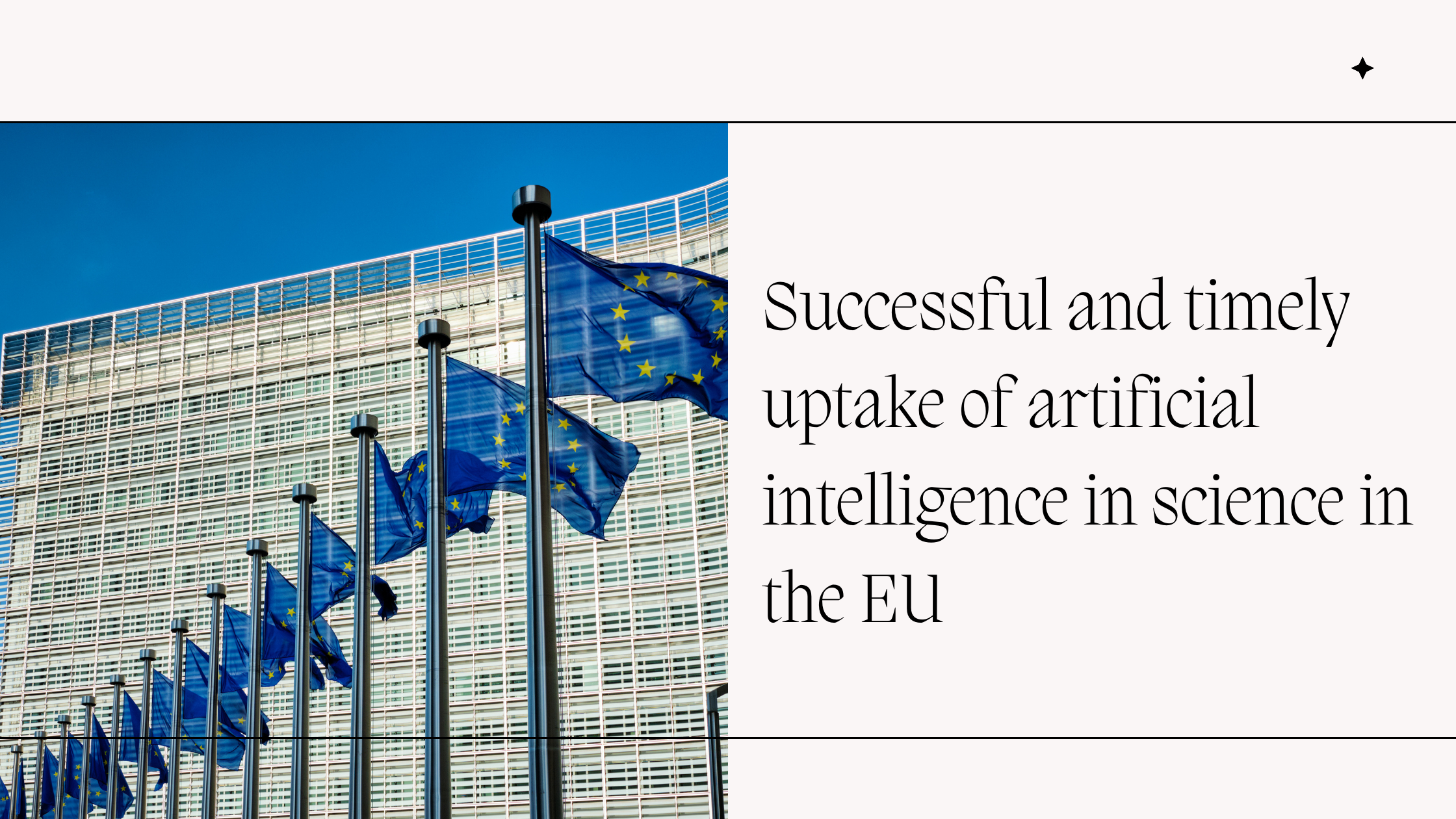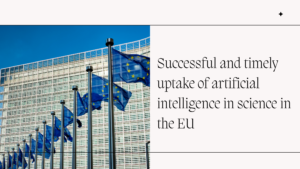The European Commission’s Scientific Advice Mechanism (SAM) issued its independent policy recommendations on encouraging the integration of Artificial Intelligence (AI) in research and innovation throughout the EU. These recommendations, released on April 15, 2024, are non-binding but could influence the Commission’s broader strategy for AI in research and innovation. They are supported by a review of evidence that was also published on the same day.
The report discusses the benefits and obstacles associated with deploying Artificial Intelligence in scientific contexts. The guidance provided by the independent scientific advisors encompasses the following points:
- Establishment of a European institute for AI in science
- High quality standards for AI systems (i.e., data, computing, codes)
- Transparency of public models
- AI tools and technologies specialised for scientific work
- AI-powered research with major benefits for EU citizens
- A Human and Community-Centric Approach
The SAM opinion was solicited by Executive Vice-President Vestager in July 2023. It enhances a variety of resources that the Commission has prepared regarding the use of AI in research and innovation. This collection includes the living Guidelines on the responsible use of generative AI, issued on March 20, as well as the policy brief on AI in Science, which was released in December 2023. Additionally, it includes the foresight survey among European Research Council (ERC) grantees utilizing AI in their research, also released in December 2023, and the portfolio analysis of ERC projects that are using and developing AI, published in March 2024.
Commissioner Ivanova said:
“Artificial Intelligence means a revolution in research and innovation and will drive our future competitiveness. We need to ensure its responsible uptake by our researchers and innovators for the benefit of science but also of the economy and society as a whole. The work of the scientific advisors provides us with a wealth of solid evidence and practical advice to inform our future actions.”
For more information:


